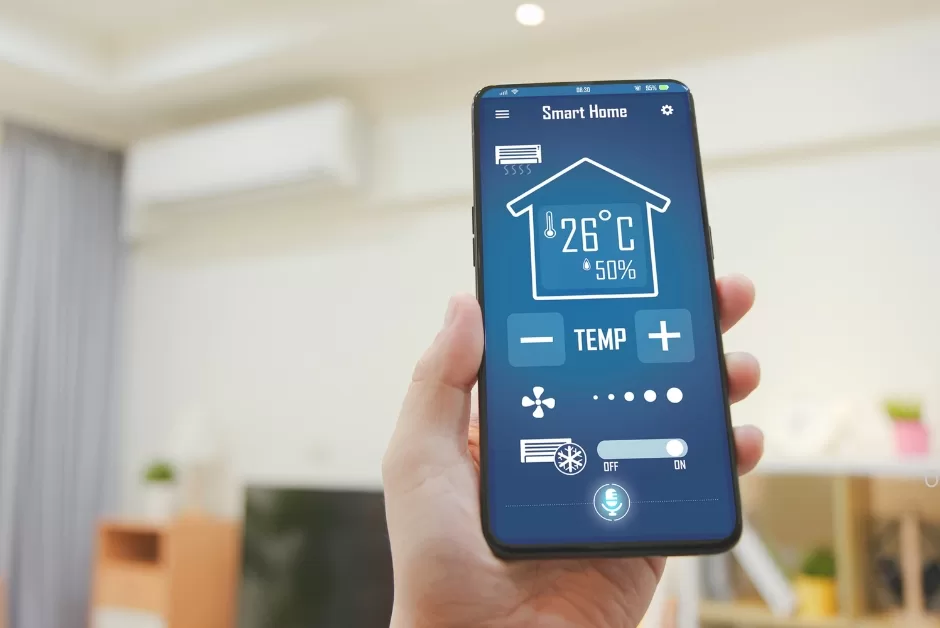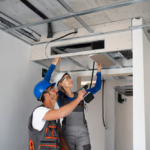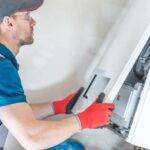Understanding Climate Control Systems
Climate control systems are designed to regulate the temperature and humidity levels in indoor spaces. These systems provide comfort by keeping the environment at a consistent and desired temperature. Climate control systems can be used in homes and businesses to create a comfortable indoor environment. By adjusting settings on the system, you can control the temperature and humidity levels to suit your preferences. Installing a climate control system can help you save on energy costs by efficiently managing the indoor climate.
Benefits of Installing Climate Control Systems
Installing a climate control system can help you save on energy costs by efficiently heating or cooling your space. It also ensures a comfortable environment year-round, providing consistent temperatures no matter the weather outside. With programmable settings, you can customize the system to match your preferences and schedule. This leads to a more convenient and hassle-free way of maintaining the ideal indoor climate without manual adjustments.
Assessing Your Home or Business Needs
When deciding on a climate control system for your home or business, it’s essential to assess your specific needs. Consider factors like the size of your space, the number of rooms that need heating or cooling, and any specific requirements you may have. Here are some key points to keep in mind while evaluating your needs:
- Evaluate the square footage of your space.
- Identify the rooms that require individual temperature control.
- Consider any special requirements such as humidity control or air quality needs.
By understanding your unique requirements, you can make an informed decision when selecting the right climate control system for your home or business.Types of Climate Control Systems
Climate control systems come in various types to suit different needs. Here are some common options you can consider:
- Central Air Conditioning: This system cools the entire building through a network of ducts and vents.
- Ductless Mini-Split Systems: Ideal for room additions where extending or installing distribution ductwork is not feasible.
- Heat Pumps: Can both heat and cool your building by moving heat in or out of the space.
- Evaporative Coolers: Best for dry climates, as they add moisture to the air as they cool.
- Window Air Conditioners: These units are installed in windows and are suitable for smaller spaces.
Each type has its own advantages and considerations, so choose one that fits your requirements and budget.
Energy Efficiency and Cost Considerations
To make sure your climate control system is energy-efficient, look for models with high Energy Star ratings. These systems can save you money in the long run by consuming less electricity. Consider these factors when assessing the cost: the initial purchase price, installation costs, ongoing maintenance expenses, and energy efficiency. By investing in an energy-efficient system, you can lower your utility bills and lessen your environmental impact.
Features to Look for in Climate Control Systems
When selecting a climate control system, focus on features like energy efficiency, smart thermostats, and multi-zone control. Look for systems that offer programmable settings to optimize comfort and save on energy costs. Consider systems with air purification capabilities to improve indoor air quality. Noise levels of the system are also crucial for a peaceful environment. Warranty coverage and professional installation services are important factors to ensure long-term performance and reliability of the system.
Installation Process for Climate Control Systems
Installation of climate control systems is a crucial step in ensuring optimum performance. Here are some key points to keep in mind:
- Proper installation is essential for efficient operation
- Hiring a professional is recommended for a seamless installation process
- The installation process may vary depending on the type of climate control system you choose (e.g., central air conditioning, ductless mini-split, heat pumps)
- A thorough inspection of your space is necessary to determine the best placement for the system
- Regular maintenance after installation helps in prolonging the system’s lifespan and ensuring peak performance.
Maintenance Tips for Optimal Performance
Regular maintenance is key to ensuring your climate control system works efficiently. Here are some tips to help you achieve optimal performance:
- Change air filters regularly to keep the air quality high and prevent strain on the system.
- Keep the outdoor unit clean by removing debris and any obstructions to allow proper airflow.
- Schedule annual professional maintenance to detect any issues early on and keep the system running smoothly.
- Check thermostat settings periodically to ensure they are set at the right temperature for comfort and energy efficiency.
Troubleshooting Common Issues
If your climate control system is not working as expected, there are a few common issues you can troubleshoot on your own before calling for professional help. Here are some simple steps you can take to address common problems like inconsistent temperature, reduced airflow, or unusual noises:
- Check the thermostat settings to ensure they are correctly configured for your comfort.
- Inspect the air filters for any clogs or dirt buildup that may be restricting airflow.
- Verify that the power source is connected and functioning correctly.
- Look for any visible leaks or blockages in the ductwork.
- If you hear strange noises coming from the system, it might indicate a mechanical issue that needs attention.
By following these basic troubleshooting steps, you may be able to resolve the issue quickly and avoid unnecessary expenses.
Conclusion: Choosing the Right Climate Control System
When it comes to choosing the right climate control system for your home or business, it’s crucial to consider the specific needs and requirements of your space. Think about factors such as the size of the area you want to control the temperature of, the climate of your location, and your budget. Take into account whether you prioritize energy efficiency, ease of maintenance, or customization options. Consult with professionals in the field to get personalized advice tailored to your situation. Ultimately, the best climate control system for you will be one that meets your needs efficiently and effectively.




